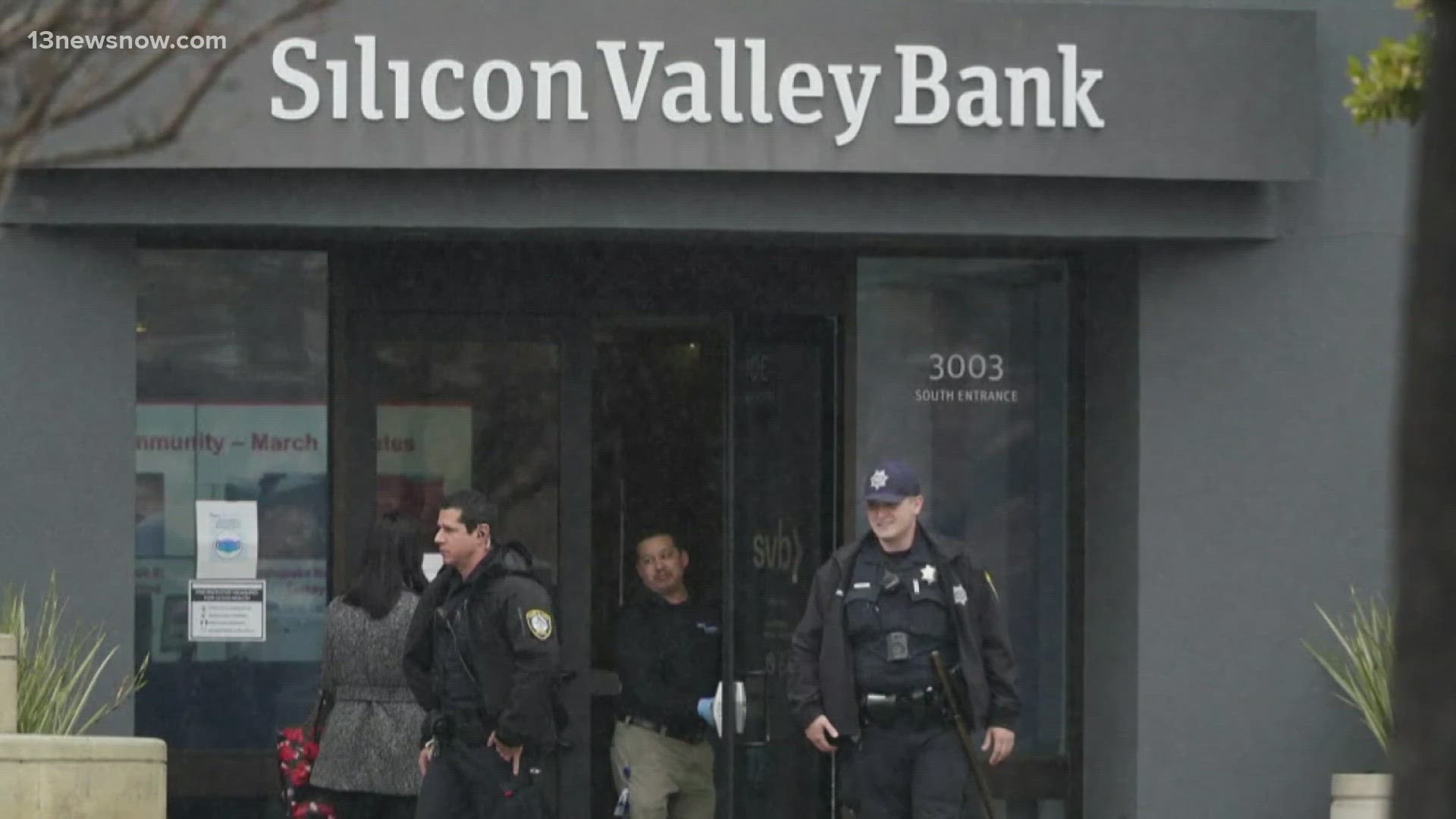NORFOLK, Va. — The swift collapse of two U.S. banks is sparking a lot of concern for consumers. Federal and state regulators have taken over Silicon Valley Bank and Signature Bank, respectively.
But what does this mean for you? Economists here in Hampton Roads said there’s no reason to panic.
“Don’t be scared. Your money is safe." Old Dominion University professor Dr. Vinod Agarwal told 13News Now. "The banking system is in good hands and the US government entities are taking appropriate actions to make sure this crisis does not get bigger.”
Agarwal explained that the collapse could have had wide-ranging consequences for all of us if the panic spread to other banks, but regulators stepped in and took control.
“If the Federal Reserve Bank or the US Treasury were not to do anything that could have been a disaster," Agarwal said.
Since the collapse of the banks, President Joe Biden is moving to reassure Americans saying “the banking system is safe.”
A financial crisis on this level may be unusual, but small banks fail more often than you might think, according to Christopher Newport University Assistant Professor Dr. Rik Chakraborti.
He explained that it's the size of this collapse that is rare, and although banks here in Hampton Roads aren’t affected, it's something worth keeping an eye on.
“From 2001 to 2023, we’ve had 562 bank failures so it’s not that rare. They do happen," Chakraborti said.
He also stressed that there's no reason to panic.
“I wouldn’t really be too worried at this stage," Chakraborti said. "It is something that we’re looking at, but I wouldn’t be panicked at this stage. It’s actually very important that you don’t panic to make sure this doesn’t blow up.”
The collapse could have short-term and long-term effects.
Dr. Andrew Root of Regent University said the Federal Reserve might rethink how much it raises the interest rate and bond rates might drop, which can affect your bank loans.
“Strangely enough, the effect in the short term may be positive for individuals," Root said. "The reason is that the price of a mortgage may decline. What we see in response to the crisis over the weekend is a reduction in rates for two-year treasury bonds, 10-year treasury bonds. On the short-term basis, you could actually see some benefit from this if you’re an individual looking to buy a house or buy a car.”
Root explained this weekend's collapse could be traced back to rising interest rates.
“The collapse is an indicator of the Fed raising interest rates for a long period of time," he said.
Economists also question if this will lead to more regulations for mid-sized banks, like the regulations in place for larger banks like Wells Fargo and JP Morgan.
“Obviously going forward, some new rules will come into play so we can even avoid the phenomenon that we have today," Agarwal said.
But the overall message from economic experts is that everyday people should not be concerned because the banking system is still sound. However, you should pay attention to what's going on.
"It’s always good to pay close attention but an event like this reminds us we should be very diligent about how we’re managing cash if we’re a small to medium business," Root said.

